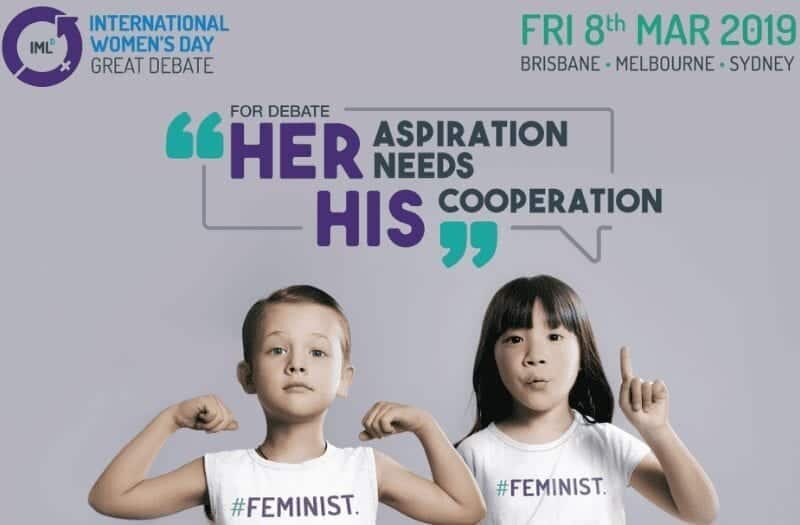Tracey Spicer’s Take on Why ‘He for She’ Means Progress for Society
By Collective Hub, 13 February, 2019
Does her aspiration need his cooperation? Join in on the International Women's Day Great Debate!
She is, perhaps, one of the most recognised and respected names in Australian television. When it comes to conquering every facet of the local media landscape, Tracey Spicer AM has been there and done it all. She’s reported the news on TV, radio, print and online.
Proving you don’t need to be privileged, wealthy – or born male – to make it big on the small screen, she inspires many Aussies. Her talent, personality and perseverance gave her an enviable list of accomplishments. Her TEDx talk, The Lady Stripped Bare, attracted more than 5 million views (and counting). She is also the co-founder of Women in Media, a nationwide mentoring and networking group, backed by the Media, Entertainment and Arts Alliance.
In 2017, this self-professed bogan also released a ‘femoir’ called The Good Girl Stripped Bare, a witty deconstruction of how she faced the many trials not uncommon to women in society and the workplace.
Plus, she’s a proud mother of two. Not bad for a woman who left the Brisbane backwaters to chase after her dream to deliver the news to the nation.
Given everything she has faced and achieved both in the personal and professional spheres, you can’t fault Tracey’s optimism about where we’re headed. “We are living at a tremendously exciting time in history, with women’s voices being amplified across Australia and around the world,” Tracey said of our age.
On Friday, 8th March [2019], Tracey will be one of three hosts at the IML’s International Women’s Day events in Brisbane, Melbourne and Sydney. It’s an event that celebrates ways we can triumph over the harsh reality behind Tracey’s experiences. She said of IWD, “True diversity and equality is good for everyone, from the workplace to broader society. I think IWD 2019 will go down as a landmark event, celebrating these advances and building for the future.”
Ahead of the event, we asked Tracey to share her thoughts on the progress of gender equality in the media, in Australia and for countless women who merely want their stories to be heard.
As a media insider, what’s been the most significant shift in the industry towards gender diversity?
To be perfectly honest, it’s a combination of factors. There are more women on boards, particularly at places like Channel 9. Women in Media has been running nationally for around five years now. I’d like to think that the organisation I co-founded has had some impact in raising the visibility of the issue of gender diversity. However, I also credit another organisation – Media Diversity Australia – with putting cultural diversity firmly on the agenda. Overall, this groundswell of feminism around the world is putting pressure on some of the ‘dinosaurs’ of the media sector. And it’s about bloody time!
What was the turning point that inspired you to become an advocate for women’s equality?
When I was sacked by email weeks after returning from maternity leave, I decided to draw a line in the sand. I wanted to fight not just for me, but for all women. As I wrote in my book, it lit a fire in my belly that burns to this day.
What role do you see leaders play in achieving gender parity?
Leaders play a huge role, as the culture comes from the top. They can mentor or sponsor women in lower or middle management, or put in place targets/quotas for female leadership. They can do a gender pay audit and establish an anonymous whistleblower hotline for instances of sexual harassment. And they can offer generous parental leave to anyone in the workplace, regardless of gender. Some terrific women and men are trying to bring about change, and they need to continue to be active as powerful allies.
You’ve told the stories of many women. Is there one who stood out to you in all your years of being a journalist, reporter and advocate?
A 73-year-old woman from country Victoria contacted me last year to tell her #metoo story. She was sexually assaulted in her first job, at the age of 17. Understandably, she quit immediately. In fact, she never entered the workforce again. She never trusted authority again. And she never told her husband, who died in 2017. I asked her whether I could help with legal, counselling or media support, and she said, “No. All I want is to tell someone and be believed before I died.” This goes to the heart of the #metoo movement, and the power and catharsis of storytelling.


